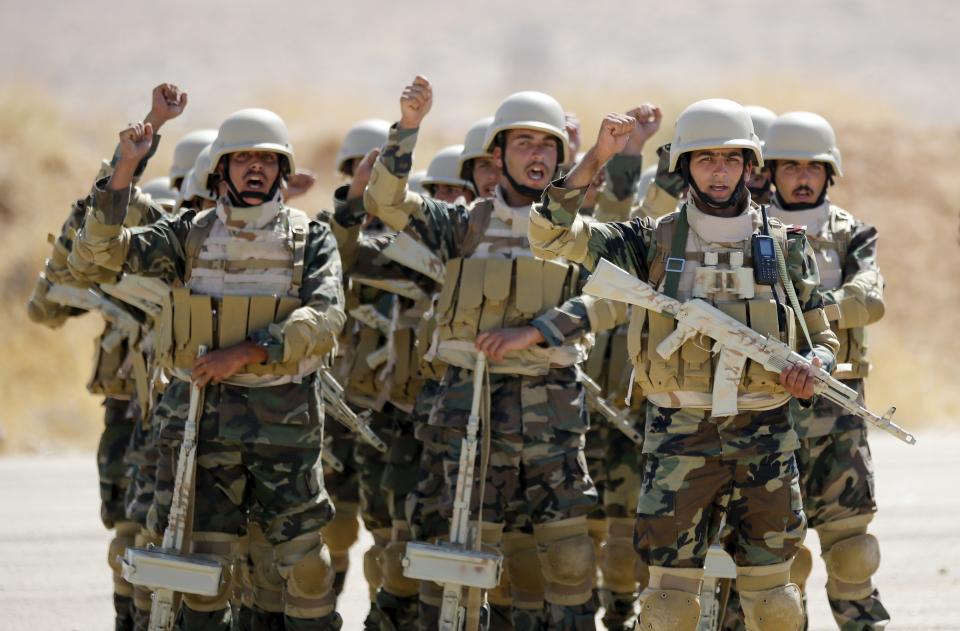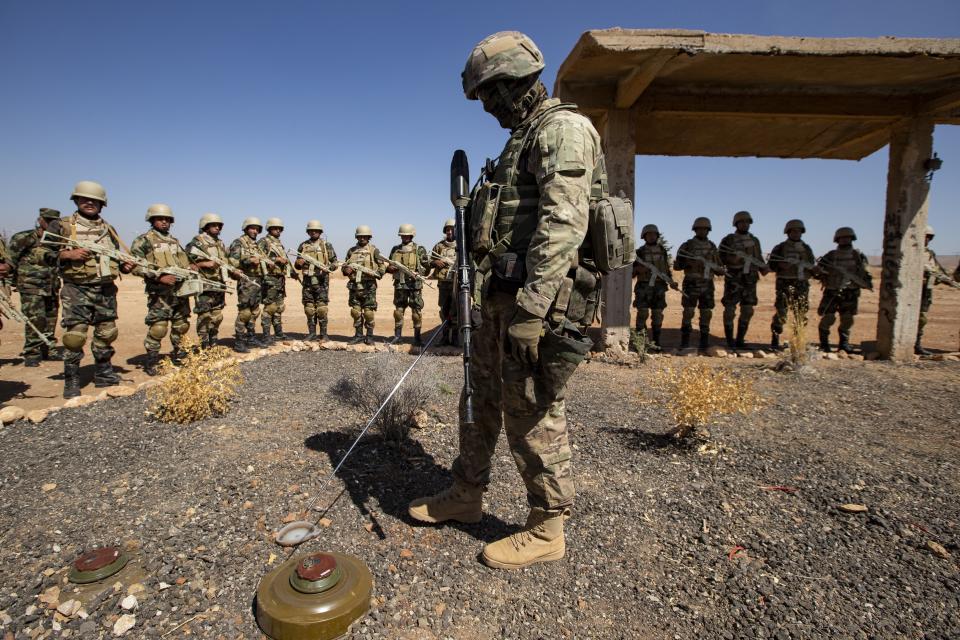Former rebel stronghold in Syria begins to rebuild
KHAN SHEIKHOUN, Syria (AP) — Portraits of Syrian President Bashar Assad adorn a few buildings still intact after years of fighting and Russian soldiers hand out food and other supplies to residents of this Syrian town that was recently captured by the Syrian army.
Khan Sheikoun, which holds a strategic position in Syria's northwestern Idlib province, fell to Assad's forces last month following weeks of a massive offensive by Syrian troops backed by Russian military support.
On Wednesday, a group of foreign reporters on a trip to Syria organized by the Russian Defense Ministry saw municipal workers clearing the streets of debris, and Russian troops distributing aid.
The town, which had a population of 65,000 when Syria's civil war erupted in 2011, now has only about 4,000 residents.
"People are afraid to come back, we still need to inspire public confidence," said Mohammed Sadoun, the acting mayor. "People are paralyzed by fear."
Idlib, which lies on the border with Turkey, is the last major rebel stronghold in the country's eight-year civil war, and Syrian troops have been on the offensive since April 30 to take control of the area.
The onslaught has provoked frictions between Russia and Turkey, which struck a de-escalation agreement for Idlib a year ago. Turkey protested the offensive, describing it as a violation of the deal and urged Russia to rein in Assad.
But Russia, which together with Iran has helped Assad's government regain control over most of the country, has insisted the offensive in Idlib was necessary to uproot militants who used the area as a base to launch attacks on Syrian government troops and Russia's military base.
Sadoun said authorities are working to reopen seven local schools, even though the front lines remain close by. Water and electricity supplies are still missing, and Russian troops distribute food and other items to the population.
"It's like before the war," 45-year-old Khalia Umran said after receiving her aid package. "We can eat and sleep quietly. Under the rebel control, life was like hell. They killed my brother and abducted my daughter, but the suffering is now over."
Anas Pserini, a father of seven who returned to Khan Sheikhoun after it was captured by government forces, was also grateful for the Russian aid. "I want to have a job, but it will only be possible after peace is restored," he said.
At the nearby Suran checkpoint, Syrian authorities on Wednesday greeted a group of about 100 people, mostly women and children, crossing into the government-controlled territory from the rebel-held areas.
"Life is horrible there, I saw dead bodies every day," said 80-year old Amina Nahas. "I want my family to live a peaceful life."
On April 3, 2017 an attack on Khan Sheikhoun left residents gasping for breath and convulsing in the streets and overcrowded hospitals. Nearly 90 people were killed. The United States, Britain and France accused the Syrian government of using nerve agents in the attack and days later, the U.S. fired 59 U.S. Tomahawk missiles at the Shayrat Air Base in central Syria, saying the attack on Khan Sheikhoun was launched from the base.
Assad's government and Russia rejected the charges, alleging the chemical attack was staged by the rebels to provoke the U.S. strike.
On Wednesday, Ravil Muginov, a Russian army general, charged that the rebels in Idlib were trying to prevent civilians from leaving the areas they control.
In Latamna, near Khan Sheikhoun, reporters were shown an elaborate network of caves that served as a major rebel base.
The caves are spacious enough to accommodate vehicles and could provide shelter to up to 5,000 rebels.
"It's a real underground town created by professionals that allowed the rebels to hide from airstrikes," said Syrian army Col. Ali Rami.


